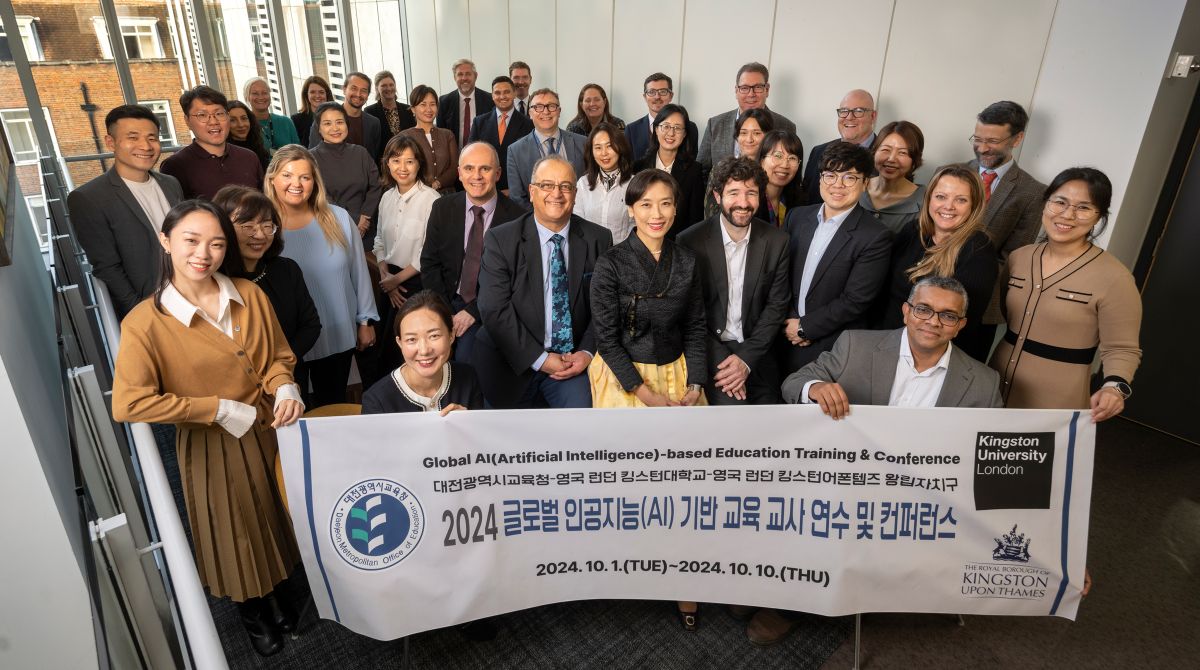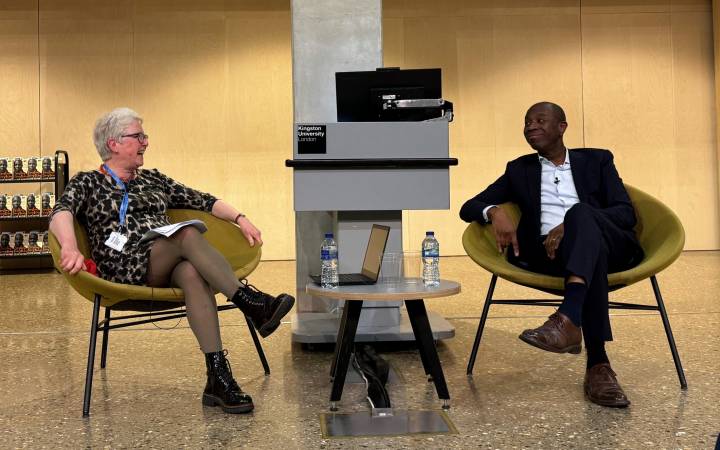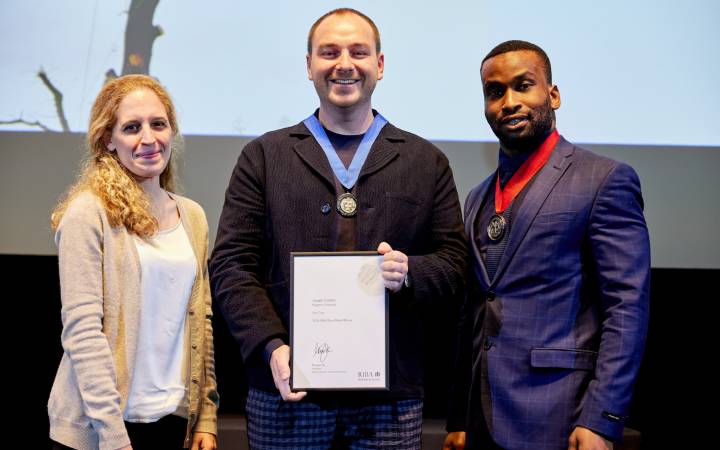Kingston University launches pilot programme on integrating AI into teaching with educators from Republic of Korea
Posted Monday 2 December 2024
 The week-long course was developed following the signing of a Memorandum of Understanding between Kingston University and the Daejeon Metropolitan Office of Education in the Republic of Korea earlier this year.
The week-long course was developed following the signing of a Memorandum of Understanding between Kingston University and the Daejeon Metropolitan Office of Education in the Republic of Korea earlier this year.
The pilot of a new programme to help educators from the Republic of Korea and the Royal Borough of Kingston learn how to integrate artificial intelligence into their teaching has been launched at Kingston University.
The week-long continuing professional development (CPD) course was developed following the signing of a Memorandum of Understanding (MoU) between Kingston University and the Daejeon Metropolitan Office of Education in the Republic of Korea earlier this year. The agreement formalised a shared commitment between the partners to play a key role in transforming global education.
The Integrating AI in Education from Strategies to Implementation programme was delivered to teachers from a variety of elementary, middle and high schools from the Daejeon region in the Republic of Korea and from four schools in the Royal Borough of Kingston – Coombe Hill Junior, Fern Hill, St Philip's and The Kingston Academy.
The programme saw a series of lectures and interactive activities delivered by Kingston's Faculty of Engineering, Computing and the Environment, with the curriculum designed by Director of Learning and Teaching for the School of Computer Science and Mathematics Dr Pushpa Kumarapeli.
Kingston University worked to make sure the programme met the expectations and needs of the Korean teachers, who also had the chance to share best practice from their classrooms with their British counterparts. They visited the four schools in the borough to witness teaching practice in the UK and deliver an AI-supported class to pupils at each school.
Dr Kumarapeli said he designed the curriculum to address both the technical complexities of AI and the pedagogical practices crucial for effective teaching. "Our approach was highly interactive, allowing us to tailor the content to the diverse backgrounds and expertise of our attendees. It created a collaborative learning environment, with a key focus on developing an AI literacy toolkit to help teachers and students understand both the potential and limitations of AI, while recognising the important role human insight will continue to play in shaping the future of education," he explained.
The programme, which was supported by Kingston Council and Kingston and Surbiton MP Sir Ed Davey, who is also leader of the Liberal Democrats, culminated with a University-hosted international conference on integrating AI in teaching. This gave the educators an opportunity to discuss how the technology could be used to reinforce core educational values.
Dean of the Faculty of Engineering, Computing and the Environment Professor Amir Alani said that, in an increasingly digital-first era, it was vital to embrace AI to enhance teaching and learning. "The pilot provided a unique opportunity to share knowledge across two nations. with this focus absolutely paramount as we start to navigate a world increasingly dominated by AI," he said. "Following its success, we very much hope to run similar, tailor-made courses for professionals across a range of fields."
The Director of Research and Enterprise in the Faculty's School of Computer Science and Mathematics, Professor Jean-Christophe Nebel, said the programme was an excellent example of the benefits of cross-collaboration and knowledge exchange. "This has been an inspiring opportunity for teachers from both the UK and the Republic of Korea to share best practice in teaching and reflect on how AI can be integrated in their classrooms to enhance delivery without altering the essence of lessons that are fundamentally human-led," he added.
- Find out more about Kingston University's MOU agreement with the Daejeon Metropolitan Office of Education.
Contact us
General enquiries:
Journalists only:
- Communications team
Tel: +44 (0)20 8417 3034
Email us



